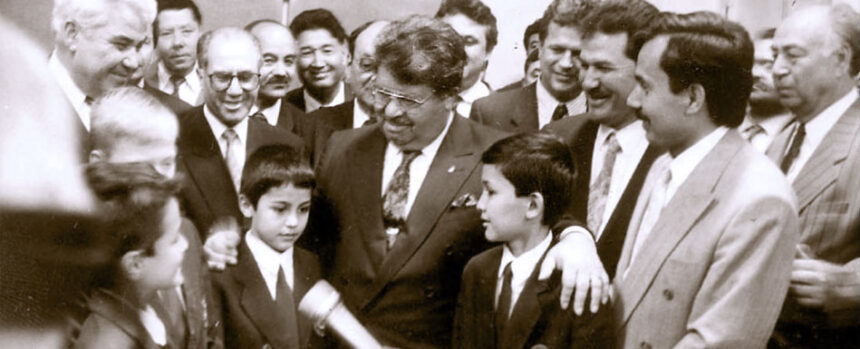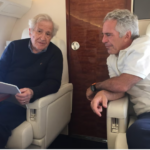The formal recognition of the Republic of Cyprus by Kazakhstan, Uzbekistan, Kyrgyzstan, and Turkmenistan has been widely described as a diplomatic defeat for Turkey. But beyond the headlines and EU investment promises lies a deeper, more structural problem that has been quietly eroding Turkey’s regional influence for nearly a decade: the dismantling of the Gülen movement’s global soft power network.
Once hailed as Turkey’s most effective instrument of cultural diplomacy and strategic engagement across the Turkic world, the Gülen movement operated hundreds of schools, universities, media platforms, and business councils throughout Central Asia. These institutions cultivated generations of political, business, and academic elites with strong affinity toward Turkey—particularly toward a version of Turkish influence based on education, civil society, and mutual development.
Following the failed July 15, 2016 coup attempt, which Ankara blamed squarely on the Gülenist network, this entire infrastructure was abruptly dismantled. Gülenist institutions were closed, seized, or forced underground. Pro-government replacements were deployed, but with limited capacity, credibility, or local trust.
As one former Turkish diplomat put it anonymously: “We replaced networks of soft power that took 20 years to build with bureaucrats and party loyalists who didn’t even speak the local languages. We left a vacuum, and others—China, Russia, and now the EU—rushed in.”
Cyprus as a Litmus Test
That vacuum was on full display this April when, during the first EU–Central Asia summit in Samarkand, four out of five Central Asian republics aligned with Brussels on the Cyprus issue. Their endorsement of UN Security Council Resolutions 541 and 550—explicitly rejecting the legitimacy of the Turkish Republic of Northern Cyprus (TRNC)—amounted to a collective rebuke of Turkey’s decades-long efforts to gain recognition for the breakaway entity.
Kazakhstan went further, opening a new embassy in Nicosia, while Uzbekistan and Turkmenistan accredited their ambassadors in Rome to Cyprus as well. Even Kyrgyzstan, whose president had once visited the TRNC, signed on to the joint declaration. Only Tajikistan, not a Turkic state, remains uninvolved in the matter—but equally supportive of EU legal frameworks.
From Influence to Isolation
This shift is about more than Cyprus. It illustrates Turkey’s diminishing capacity to shape regional consensus, even among supposedly like-minded Turkic allies. The Organization of Turkic States (OTS), which had granted observer status to the TRNC in 2022, now faces a legitimacy crisis. If its full members do not support Ankara’s diplomatic priorities, can the bloc still claim political unity?
The answer, many observers say, is no. The Samarkand declaration—with its €12 billion carrot from Brussels—was the final blow to what remained of Turkey’s moral leadership in Central Asia. But the erosion began long before the summit.
The purge of the Gülenists didn’t just remove political enemies—it erased the very networks that had allowed Turkey to project influence without coercion. Where Turkish schools once stood as cultural bridges, Chinese Confucius Institutes, Western universities, and Russian-language academies now flourish.
The Cost of Replacing Education with Coercion
Ankara has attempted to fill the void with state-backed initiatives such as the Maarif Foundation, TRT World, and Diyanet-sponsored religious programs. But these replacements, critics argue, lack both the professionalism and neutrality that allowed Gülenist institutions to thrive abroad. In many cases, local governments viewed them as extensions of Turkish domestic politics rather than credible partners.
Moreover, while the Gülenist diaspora had invested heavily in relationships with civil society and emerging political classes, the post-purge Turkish approach has leaned heavily on transactional diplomacy: pipeline deals, trade delegations, and reactive media narratives—tools that pale in comparison to long-term educational engagement.
No Longer First Among Equals
The recognition of Cyprus’s internationally recognized government by Central Asian states was, in part, the outcome of EU strategic outreach. But it was also the result of Turkey’s long-term abandonment of soft power strategies that once gave it unmatched leverage in the Turkic world.
As one veteran Turkish analyst bluntly noted: “For years we were first among equals in Central Asia. Now we’re not even first among competitors.”
In a moment when Turkey is trying to balance relations with NATO, Russia, and the Islamic world, its failure to retain influence among its closest linguistic and cultural allies—Kazakhstan, Kyrgyzstan, Uzbekistan, and Turkmenistan—should be a wake-up call.
The Cyprus recognition row is not just a foreign policy loss. It’s the bill coming due for the self-inflicted destruction of the very institutions that once gave Turkey a unique advantage.







